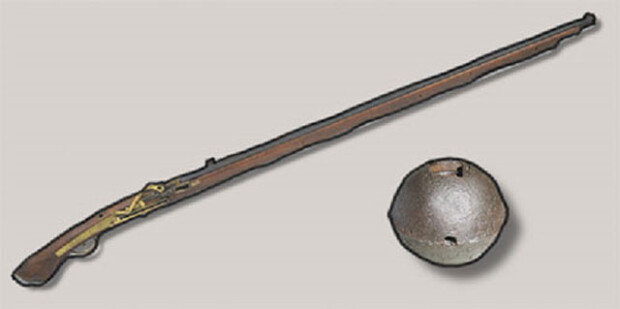The firearm built based on complaints
The firearm built based on complaints
Posted December. 11, 2018 08:57,
Updated December. 11, 2018 08:57

What do you think are the top 100 inventions that have changed the course of history? At first sight, it may sound like a piece of cake. However, once you start coming up with an answer, you would be bombarded with an overflowing stream of so many ideas. It may be hard to choose the final candidates but you would find it easier to see they have a lot in common. In a way, many of the world-changing inventions came under fire for the inconveniences that they involve. Gunpowder and guns must be mentioned on the list. No one knows who invented them. It is understandable to some degree that the inventor of gunpower has not been revealed given that it came along a long time ago. However, it is somewhat unexpected that we do not know who devised the flintlock even though it was invented in the 15th century. It may be because lords and knights might have considered guns an ominous object that could destruct social order. It can be guessed that the inventor of the first-ever gun might have lived in the shadows as it has many shortcomings and flaws.
Even after flintlocks were accepted by the military, they were considered a headache. It took more than 60 steps and actions from loading to firing. They were only 10 to 20 percent faster than arrows. A high degree of humidity prevented them from working. The firearm was heavy and inconvenient to carry with. Both the gun and powder cost way more than other arms. Safety concerns were also raised. Soldiers who take care of flintlocks were not able to wear armor, leaving them unprotected in a hand-to-hand combat. It inevitably took additional spearmen to protect soldiers with flintlocks. Rather than that, it would be much more efficient to have more archers and spearmen. Bullets were fired so unevenly that some of them explode the gun when they are pushed hard into the gun by force. Iron parts to shape a gun barrel were too weak or inconsistent in quality, which can also lead to an explosion. It was hard to maintain gunpowder in a dry state. The flintlocks need many accessories such as power kegs and rammers, adding more inconveniences.
The path of gun history has always been the process of resolving such complaints with the help of technology and ideas. That is the beauty of complaints and freedom of press. Turning a deaf ear to complaints and objections and gagging these voices only worsen the situation, causing greater grievance and hatred. Once the state of hatred hits us so hard, our society only suffers disconnection and stagnation. It may be easy to answer this question: Which nation will win war, one with flintlocks or the other with modernized guns? The key to complaints and dissatisfaction lies in how you understand and treat them.







